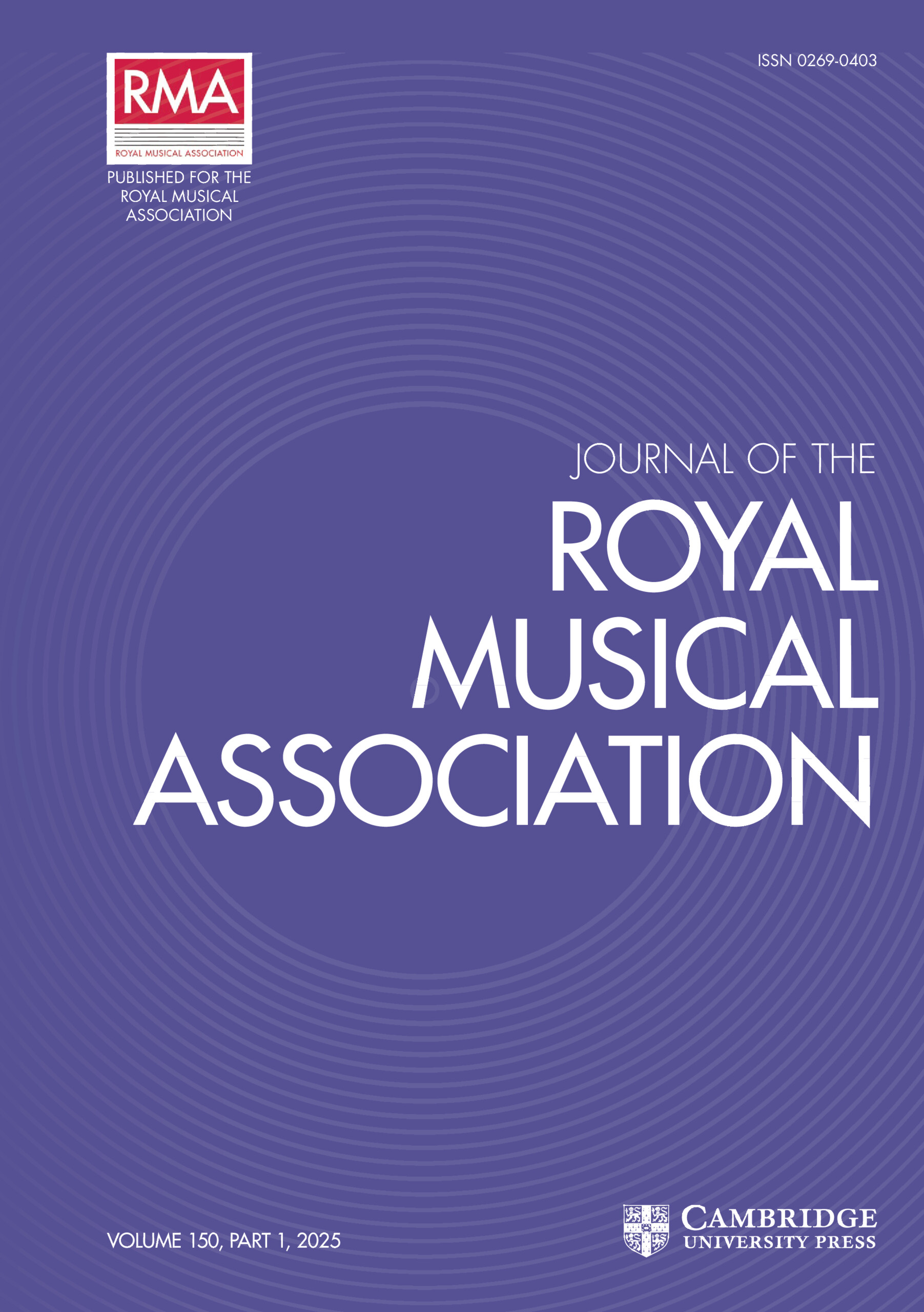Article contents
Sound Gazes?
Response to William Fitzgerald
Published online by Cambridge University Press: 01 January 2020
Abstract
This response considers whether it is possible to think of listening as a non-coercive alternative to ‘the gaze’. An attention to the work of ancient and modern thinkers provides a starting point for conceptualizing musical ‘possession’ in a way that is not bound to asymmetrical, subject–object relations.
- Type
- Research Article
- Information
- Journal of the Royal Musical Association , Volume 135 , Issue S1: Listening: Interdisciplinary Perspectives , 2010 , pp. 39 - 43
- Copyright
- Copyright © The Royal Musical Association
References
1 Maurice Blanchot, The Space of Literature, trans. Ann Smock (Lincoln, NE, 1982), 172–3.
2 Plato, Ion, Early Socratic Dialogues, trans. and ed. Trevor J. Saunders (Harmondsworth, 1987), 49–65 (p. 55; emphasis of last sentence added).
3 Plato, The Republic, trans. Tom Griffith, ed. Giovanni R. F. Ferrari (Cambridge, 2000), 320.
4 See Gregory Nagy, Poetry as Performance: Homer and Beyond (Cambridge, 1996), 5–103; and idem, ‘Homer and Plato at the Panathenaia: Synchronic and Diachronic Perspectives’, Contextualizing Classics, ed. Thomas M. Falkner, Nancy Felson and David Konstan (Lanham, MD, 1999), 127–55.
5 Friedrich Nietzsche, The Genealogy of Morals and Ecce Homo, trans. and ed. Walter Kaufmann (New York, 1967), 61.
6 Nietzsche, The Genealogy of Morals, trans. and ed. Kaufmann, 57–8.
7 August Wilhelm Schlegel, ‘From Lectures on Dramatic Art and Literature’, German Romantic Criticism, ed. Leslie Willson (New York, 1982), 175–218 (pp. 183–4).
- 2
- Cited by


